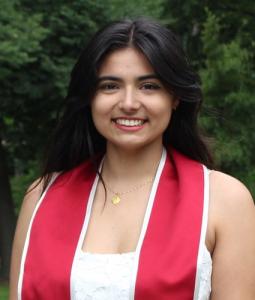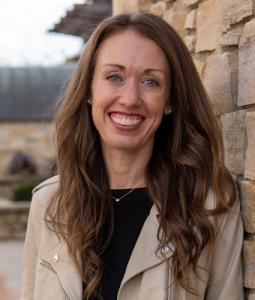Making History: Snacks Included!
History thesis write-ins bring back collaboration and community post-pandemic
By Audrey Weckwerth
Held in the historic Tea Room in the Social Sciences Research building, the write-ins were created to revitalize the thesis writing process after the pandemic. Dr. Peggy O’Donnell, Assistant Instructional Professor and Associate Director of Undergraduate Studies Committee, spearheaded the write-ins. She recognizes the challenges of writing a thesis, particularly in history.
“History is unique–in econ or math, students do problem sets in the Reg together to get to know other students, but in history the work is very individual. We have to work a bit to get our students to know each other, and a lot of that happens in the thesis process–they start to see themselves as part of the cohort,” O’Donnell says.
Opening the Tea Room – complete, of course, with snacks – fostered a sense of community. Students like Chilkoti who attended the optional weekly events gained fellowship and reassurement while they faced tough writing tasks.
Chilkoti says, “Meeting people doing the same sort of thing you were doing, and facing the same sort of challenges, was a great morale booster. It made you feel you weren’t alone.”
In addition, the Tea Room’s location in the Social Sciences Research Building, where the offices of most History faculty are located, meant that faculty members often stopped by to offer moral support, writing assistance, and sometimes comedic relief for hardworking students. (After all, even thesis students need a break at times.)
“The write-ins and History’s programming built community and morale during the long, grueling thesis writing process.”
Olivia Chilkoti, a 4th year College student majoring in History, speaks to the efficacy of a new Department of History’s initiative: weekly write-ins for students producing a History thesis to drop by, write, and spend time with their peers.
Not every write-in whiled away the hours hard at work. Chilkoti recalled “History Thesis Game Night” in which various types of themed Monopoly boards–National Parks Monopoly, World War II Monopoly, and more–made places and times in history into an entertaining study break.
“A special sort of camaraderie between faculty and students comes easy when we’re negotiating over Park Place,” Chilkoti notes.
Between Game Night, Thesis “Speed-Dating”, and other activities, the write-ins were a success for History thesis students. For Chilkoti, the most important take-away was the friendships she formed along the way.
“As a result of the seminars and write-ins, I actually built a whole new friend group this year. It felt like a gift.”
Chilkoti adds, “The connections that made the biggest difference were my peer reviewers, Brennan and Jonathan. We read literally everything each other wrote, and it’s valuable to have peers so deeply engaged with your writing. Also, one of the great things about the thesis process as a whole is that we became good friends.”
This camaraderie and the write-ins as a whole were facilitated by Dr. O’Donnell alongside Kathleen Belew, Assistant Professor and Director of Undergraduate Studies, as well as members of the Undergraduate Studies Committee. History faculty and Teaching Fellows attended the write-ins to step out of their teaching role and chat with students; the door was always open.
 THE UNIVERSITY OF CHICAGO
THE UNIVERSITY OF CHICAGO



